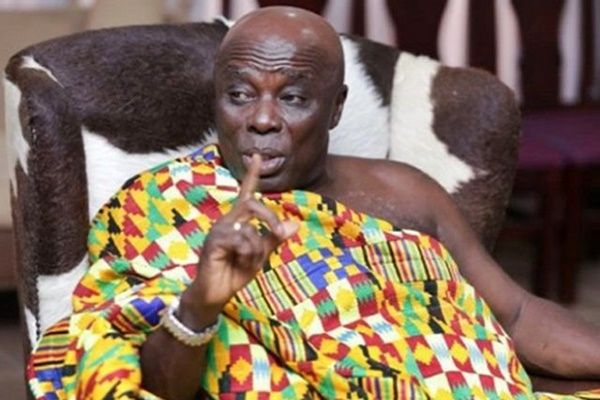
[ad_1]

Osagyefuo Amoatia Ofori Panin
Okyenhene, Osagyefuo Amoatia Ofori Panin, observed that without good governance, West Africa will struggle to meet its social and economic goals.
He said the enormous opportunities in the sub-region had been hampered by persistent gaps in education, health and skills, “and most importantly poor governance, which prevented the sub-region from achieving minimum 40 percent of its estimated potential “. .
The Okyenhene said this during a consultative meeting of religious and traditional leaders on the Economic Community of West African States (ECOWAS) Vision 2050 at the Ofori Panin Fie in Kyebi in the region of the east last Thursday.
The meeting discussed opportunities for sustainable development and environmental preservation.
The ECOWAS Vision 2050 envisions a borderless, peaceful, prosperous and cohesive region, built on good governance, where citizens will have the capacity to access and harness the region’s enormous resources for sustainable development.
It was adopted in June 2007 by the Authority of Heads of State and Government of ECOWAS as a development plan for the transformation of West Africa.
Okyenhene said the gruesome scenes of “our young men losing their lives in the Mediterranean trying to reach Europe call into question the need to examine the structures and effectiveness of the system of governance and approaches to governance. planning of public policies and the implementation of programs in our various countries “.
Chiefdom
Osagyefuo Ofori Panin said the chiefdom is the main source of political socialization that integrates all aspects of religious, economic, environmental, traditional medicine, marriage, self-identity and public peace.
He said that in Ghana, for example, 95% of matrimonial and inheritance disputes were resolved in chiefs’ palaces, with over 80% of all disputes and 70% of all legal issues resolved, and that “this attested to of the essential character of the institution of the chiefdom in modern governance “.
“With regard to public order, the presence of the police in rural and peri-urban areas is practically absent. Public order is maintained by the traditional system of control and surveillance by the chiefs, proven and accepted for a long time.” , he added.
Focus
Osagyefuo Ofori Panin expressed concern over the lingering conflicts between nomadic livestock owners and the sedentary agricultural economy that crosses the sub-region.
He said politicians “must be compelled to commit to instituting legislative measures to ensure the inclusiveness of traditional actors at all levels of governance in the spirit of decentralization and popular participation.”
He said it was gratifying to note that such a historic opportunity to strategize for long-term development challenges in the sub-region placed special emphasis on the involvement of traditional leaders.
“It is a solid and glorifying tribute to the positive role that traditional authority can play in the social and economic upliftment of our people, and the many ways in which it can contribute to the goal of national progress and prosperity,” did he declare.
Achievable goals
Foreign Affairs and Regional Integration Minister-designate Shirley Ayorkor Botchwey said the meeting and subsequent engagements with other stakeholders would lead to outcomes that would help formulate achievable and relevant goals for the sub-region.
She said that the ECOWAS Vision 2050 had become a natural successor to the ECOWAS Vision 2020 which expired in December 2020 and required the development of a roadmap for the preparation of the post-2020 Vision.
Ms Botchwey noted that the Vision 2050 development processes began in January 2019, with the meeting being part of this ongoing process.
“Achieving this noble vision depends, to a large extent, on local actions taken by the citizens of our community, with the support of our traditional and religious leaders who are the custodians of our societal norms,” she said. .
To effectively support local actions, it was important to forge partnerships with relevant stakeholders, including traditional and religious leaders, given their wide reach and presence in the region, she said.
She said the government was aware that until now ECOWAS had been seen as a community that had lost touch with the citizens, adding that it was fundamentally seen as a community of bureaucrats and politicians without grassroots involvement. .
“I am happy that, collectively, we are taking commendable steps to correct this bad impression on ECOWAS,” she said.
[ad_2]
Source link